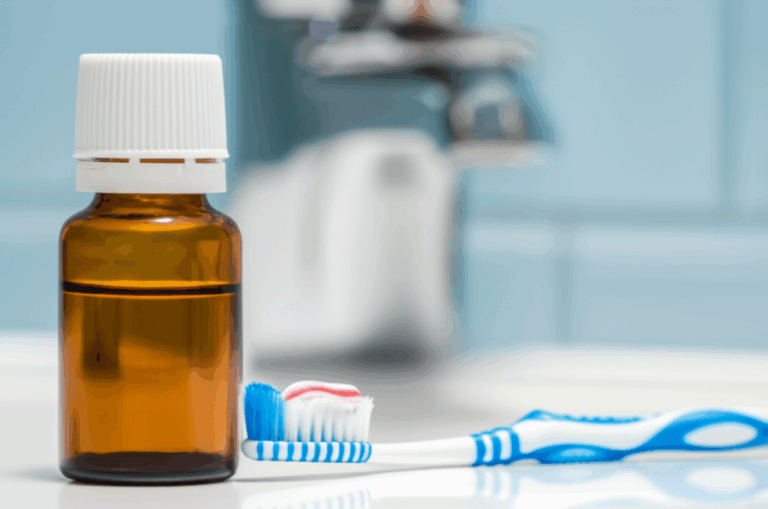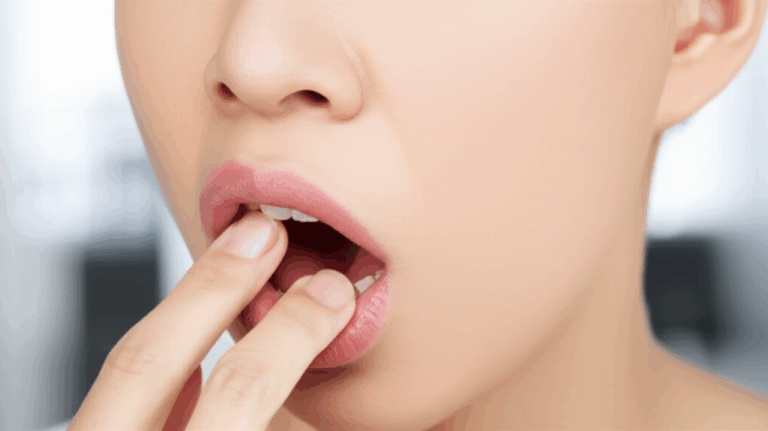How Long Does Dental Numbness Last? Understanding Your Post-Dentist Recovery
You just got back from the dentist. Now your mouth feels weird—cheeks tingly, lips heavy, maybe even your tongue is numb. You might wonder, “How long does this numbness last? Is this normal?” If you’ve ever had dental work with numbing, you know the strange, sometimes annoying feeling. This article explains what dental numbness is, why it happens, how long it lasts, when you should worry, and how to stay safe and comfortable while you wait for the feeling to come back. With tips and easy advice, I hope this guide helps you feel better (and maybe even gives you a reason to smile!).
Table of Contents
What Is Dental Numbness and Why Does It Happen?
Let’s start simple. When you need a filling, a tooth pulled, or another kind of dental work, dentists use something called local anesthesia. This is just a medicine (like Lidocaine or Articaine) that stops pain messages from your teeth, gums, or jaw from reaching your brain.
So what’s really happening? You feel nothing—no pain but also no control. Your face might feel funny or droop a little. Talking is weird. Your smile could be crooked! Eating, drinking, or even swallowing can feel tricky. That numb, tingly feeling lingers, and you just want to know: “When will I feel normal again?“
Dental numbness happens because your dentist blocks nerves on purpose so the dental work doesn’t hurt. The numbness is not a bad side effect—it helps keep you comfortable.
How Does Local Anesthetic Work in Your Mouth?
The dentist uses a small needle to put the numbing medicine near certain nerves. There are different ways and places to do this:
- Nerve Block: For bottom teeth (like back teeth or wisdom teeth), the medicine goes close to the big nerve for the whole jaw (the Inferior Alveolar Nerve). Your chin, bottom lip, and sometimes your tongue can all go numb.
- Infiltration: For top teeth (like front teeth), the anesthetic is put near the tooth root. This only numbs a small area—usually just one or two teeth and some of the gums.
- Palatal and Buccal Injections: Sometimes the dentist will numb the roof of your mouth (palate) or the inside of your cheek (buccal area).
Once the medicine is in, it stops the nerves from sending messages. That means you won’t feel pain, but also you might not feel touching, hot, or cold.
Most dental numbing meds are amides—these include Lidocaine, Articaine, Mepivacaine, Prilocaine, and Bupivacaine. Sometimes they add something called a vasoconstrictor (like epinephrine) to make the numbness last longer.
How Long Does Each Dental Anesthetic Last?
Here’s a simple chart, based on what dentists usually use and reviewed by Dr. Joe Dental, DDS.
| Anesthetic | Common Brand | Starts Working In | Numbness in Cheek/Lips | Numbness in Tooth | Notes |
|---|---|---|---|---|---|
| Lidocaine | Xylocaine | 2-4 mins | 1-3 hours | 40-60 min | Most used, very safe |
| Articaine | Septocaine | 1-2 mins | 2-5 hours | 60-90 min | Good for tough teeth |
| Mepivacaine | Carbocaine, Polocaine | 2-4 mins | 1-2 hours | 20-40 min | Good for quick jobs |
| Prilocaine | Citanest | 2-4 mins | 1.5-3 hours | 40-60 min | Safer for heart problems |
| Bupivacaine | Marcaine | 5-10 mins | 4-9 hours | 90-180 min | Lasts the longest |
Adding a vasoconstrictor like epinephrine can make your face stay numb even longer—think 3-6 hours instead of 1-2, especially in your lips and cheeks.
Key takeaway:
For most people, dental numbness goes away in 2 to 5 hours for the cheeks and lips, and about 45 minutes to 2 hours for the tooth itself!
What Factors Affect How Long Numbness Stays?
Here’s where it gets a bit different for everyone. Not all people go numb for the same amount of time.
1. Type and amount of numbing medicine
Stronger or bigger dose? Numbness can last longer.
2. Where the shot goes
Nerve block = longer numbness (think all bottom teeth).
Infiltration = shorter numbness (just a small spot).
3. Your body
Kids usually wear off numbness faster. Some people’s bodies clear the medicine out quicker.
4. Vasoconstrictor used
If your dentist used something like epinephrine, your mouth stays numb longer since it keeps the medicine in place.
5. Your age, size, and health
Young or thin? Numbness might go away faster. Older or people with health problems? It might stick around longer.
6. Anxiety or stress
Worried or scared? That can make you notice the numbness more or feel like it’s lasting longer.
7. Which teeth were treated
Lower jaw will stay numb longer than the upper jaw.
What Will I Feel as the Numbness Wears Off?
When your leg “falls asleep” and wakes up, your mouth feels kind of like that.
- Tingling or “pins and needles” in the lips, tongue, cheek, or jaw
- Itchy or tickly feeling as nerves wake up
- A little awkwardness with talking, eating, or drinking
Numbness goes away slowly and can feel uneven—some spots will wake up faster than others. Most people start to feel normal about 2-3 hours after the dentist visit.
A little pain or soreness after is normal too. Your dentist might suggest a painkiller, especially if you had a tooth pulled or big work done.
Is My Numbness Lasting Too Long?
Most dental numbness is normal and goes away on its own. But sometimes it takes longer.
When is lingering numbness normal?
- Up to 5 hours for most numbing shots with vasoconstrictors
- Up to 9 hours with Bupivacaine (the longest one, used for big surgeries)
- Up to 2-3 hours for the tooth to feel normal again
When should you worry?
Numbness can sometimes last too long.
If it goes on longer than 8-12 hours for regular dental work, or more than 24 hours after a big surgery, call your dentist.
It could be a rare problem, like nerve trouble (paresthesia or dysesthesia).
Look out for these:
- Burning, shooting, or really bad pain (not just tingly)
- Swelling or rash
- Droopy face on one side, or if you can’t close your eye
Usually, this doesn’t mean your dentist did anything wrong. Nerves are tiny and can get a little bruised. Still, always call if you’re unsure.
How Can I Get Rid of Dental Numbness Faster (or At Least Feel Better)?
Honestly, you can’t really make the numbness go away quicker. Your body just needs time to clear out the medicine. But you can help yourself feel a bit better.
1. Move around (carefully!)
Taking a gentle walk can help a little, but don’t do too much.
2. Massage or warm cloth
Gently rub your cheek or hold a warm (not hot!) cloth up. This can make things feel a little less stiff.
3. Sit up
Don’t lie down right away. Sitting up can help your body work through the medicine.
4. Drink water (carefully)
Keep hydrated, but don’t use a straw—you might spill or, if you just had a tooth pulled, you could cause a dry socket.
5. Caffeine?
Some say coffee wakes up their mouth, but there’s no proof. If you try this, don’t burn yourself!
Warning: Don’t chew gum or eat before you feel your mouth again. You could bite your tongue or cheek.
What Should I Avoid While Numb?
I learned this the hard way: after a filling, before the numbness was gone, I bit into a cheeseburger. Ouch! Here’s what to skip:
- Don’t chew solid or crunchy foods until the feeling comes back.
- No hot drinks—You could burn yourself and not even feel it!
- Don’t bite your lips, cheeks or tongue—Both kids and adults slip up and it really hurts later!
- No hard workouts—You need to feel your mouth and jaw to stay safe.
- Talk less—You could slur your words or bite your cheek or tongue by accident.
If you need a drink, use a cup and sip slowly.
What Are the Risks of Long-Lasting Numbness?
Permanent nerve damage after a dental shot is very rare, but not impossible. It can happen in about 1 of every 26,000 to 200,000 people. Dr. Joe Dental says the usual reason is a bruised nerve, especially after shots for the lower jaw.
Signs there may be a problem:
- Still no feeling, or a strange, tingly or burning feeling that lasts for days or weeks
- Trouble moving your lips or tongue
- A droopy mouth or problems blinking on one side
Most times, things get better after a few weeks or months as the nerve heals. But if this happens, tell your dentist.
When Should I Call the Dentist?
Call the office if you have:
- Numbness that doesn’t start to fade after 8-12 hours
- Numbness plus big swelling, pus, or bleeding
- Trouble swallowing, breathing, or closing your eye
- Rash, hives, or itching (could be an allergy)
- Sudden, really bad pain or no control in your face or jaw
Your dental team can check for problems and help you feel better.
Easy Tips to Stay Safe and Heal Faster
Here are some quick tips to feel normal again, and keep your mouth safe:
- Always follow your dentist’s instructions after you get home
- Don’t eat until the numbness is gone—so you don’t bite your cheek, lips, or tongue
- For little kids, keep a washcloth handy and watch them closely
- Take pain medicine if you need it, but don’t go over the recommended amount
- Use a mirror if you need to eat or drink—less chance you’ll miss your mouth
- Stay hydrated and rest when you can
If you need more dental work like crowns or bridges in the future, pick a crown and bridge lab with a good name for being safe and quick.
Frequently Asked Questions (FAQs)
Q: Will numbness after the dentist change how I talk?
A: Yes, for a few hours you might slur your words and sound funny. This stops once you feel normal again.
Q: Can I eat or drink while my mouth is numb?
A: Only soft, cool foods and drinks—and be super careful! It’s best to wait if you can.
Q: Is numbness after a filling normal?
A: Definitely. It should go away in 1-2 hours for most people.
Q: What if my kid bites their lip while numb?
A: Gently clean the bite and use a cold pack. If there’s lots of bleeding or swelling, call your dentist.
Q: How will I know if I have nerve damage?
A: If the numbness, tingling, or loss of movement doesn’t get better after a day or two, call your dentist for advice.
Key Points to Remember
- Dental numbness after dental work is normal. It keeps you from feeling pain during the visit.
- Most numbness goes away in 2 to 5 hours. If it doesn’t, call your dentist.
- Tingling, itching, and “pins and needles” mean your mouth is waking up.
- People often bite their mouth by mistake—don’t eat or drink hot stuff while numb.
- Sometimes numbness stays longer because of nerve blocks, strong medicine, or how your body works.
- Rarely, nerves stay numb longer. Tell your dentist.
- If you want crowns, bridges, or other repairs, use a trusted china dental lab for safe, reliable work.
- If you notice severe pain, swelling, trouble breathing, or a droopy face, get help right away.
Your mouth will feel normal soon—take care and keep smiling!
Article reviewed by Dr. Joe Dental, DDS – practicing dentist with over 20 years of experience.
References:
For more on dental care, check out our practical guide and stay informed and healthy!







